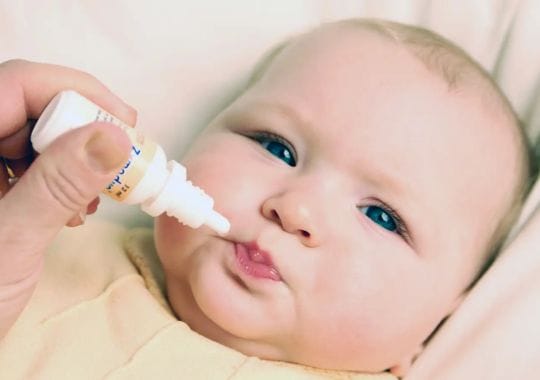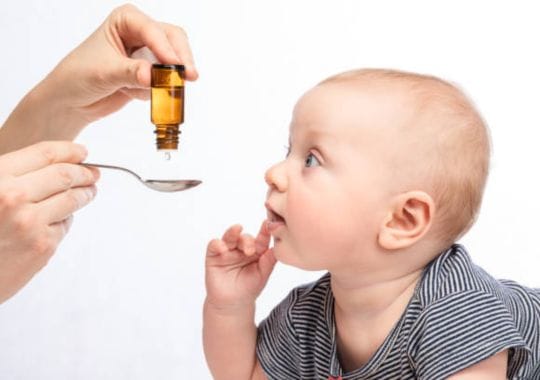Are you a new parent or caregiver wondering about the best way to ensure your baby gets the right amount of vitamin D3? It's a common concern, as vitamin D3 is essential for a baby's healthy development, particularly when it comes to bone health and immunity. In this article, we'll dive into the important topic of how many days vitamin D3 should a baby take to promote their well-being.
As Amazon affiliates we may earn a commission if you purchase a product at no cost to you.

Watch the video and learn.
How Many Days Vitamin D3 Should Baby Take?
Now that we understand why vitamin D3 is vital for your baby, let's address the main question: how many days should your baby take vitamin D3 supplements?
Age Matters
The recommended duration for giving vitamin D3 supplements to your baby depends on their age:
From Birth to 12 Months:
- For newborns and infants up to 12 months old, it is generally recommended to provide a daily vitamin D3 supplement. This is especially important if your baby is primarily breastfed, as breast milk may not contain enough vitamin D3 to meet their needs.
Beyond 12 Months:
- Once your baby reaches their first birthday, their dietary needs and sources of vitamin D3 may change. Consult with your pediatrician to determine if supplementation is still necessary and, if so, at what dosage.
Dosage Guidelines
The recommended dosage of vitamin D3 for babies can vary depending on their age and specific circumstances. Here are some general guidelines:
- Newborns (0-2 months): Typically, 400 IU (International Units) of vitamin D3 per day is recommended for newborns. This can be administered as drops or in a liquid form.
- Infants (2 months - 12 months): Continue with the 400 IU per day dosage during this period.
- Toddlers (1-3 years): After your baby's first birthday, consult with your pediatrician to determine the appropriate dosage. It may remain at 400 IU per day or be adjusted based on your child's needs.
Remember that these are general recommendations, and individual circumstances can vary. Always consult with your healthcare provider or pediatrician for personalized advice on the right dosage for your baby.

Duration of Supplementation
The duration of vitamin D3 supplementation for your baby will depend on several factors:
- Breastfeeding: If your baby is exclusively breastfed, vitamin D3 supplementation is typically recommended for the entire first year of life.
- Formula Feeding: If your baby is primarily formula-fed, the formula may already be fortified with vitamin D3. In such cases, your pediatrician will guide you on whether additional supplementation is needed and for how long.
Weaning to Solid Foods: As your baby transitions to solid foods, their dietary intake will change. Your pediatrician will continue to monitor their vitamin D3 needs and provide guidance on supplementation.
Medical Conditions: Babies with certain medical conditions may require vitamin D3 supplementation for a more extended period. Always follow your healthcare provider's recommendations in such cases.

The Importance of Vitamin D3 for Babies
Building Strong Bones
Vitamin D3 plays a vital role in calcium absorption, which is essential for the development of strong and healthy bones in babies. Insufficient vitamin D3 can lead to conditions like rickets, a condition where bones become soft and fragile, increasing the risk of fractures.
Boosting Immunity
Vitamin D3 also contributes to a robust immune system, helping your baby fight off infections and illnesses. Adequate vitamin D3 levels can reduce the likelihood of respiratory infections and other common childhood ailments.
Supporting Overall Growth
Beyond bone health and immunity, vitamin D3 is involved in various bodily functions, including cell growth and neuromuscular function. It helps ensure your baby's overall growth and development are on track.
Recommended Article

Frequently Asked Questions FAQs
Can I Give My Baby Too Much Vitamin D3?
While vitamin D3 is essential, excessive amounts can be harmful. Stick to the recommended dosage advised by your pediatrician to ensure your baby's safety.
What if My Baby Gets Sunlight?
Sunlight is a natural source of vitamin D. However, it's challenging for babies to get enough sunlight exposure, and there are concerns about their delicate skin. Vitamin D3 supplementation is still essential.
Are There Any Signs of Vitamin D3 Deficiency in Babies?
Common signs of vitamin D3 deficiency in babies can include delayed motor development, muscle weakness, irritability, and difficulty sleeping. However, these symptoms can overlap with other issues, so it's crucial to consult with a healthcare professional for a proper diagnosis.
Should I Continue Vitamin D3 Supplements After My Baby Starts Eating Solid Foods?
The need for supplementation can change as your baby's diet evolves. Consult with your pediatrician to determine if vitamin D3 supplementation is still necessary after solid foods are introduced.
What if My Baby Spits Out the Vitamin D3 Drops?
If your baby frequently spits out the supplement, try different methods, such as mixing it with a small amount of breast milk or formula. Consult your pediatrician for alternative solutions if the issue persists.
Conclusion
Ensuring your baby receives the right amount of vitamin D3 is essential for their healthy growth and development. Remember, the answer to "How many days should a baby take vitamin D3?" depends on their age, feeding method, and individual circumstances. Always consult with your pediatrician or healthcare provider to determine the best approach for your baby. By following their guidance, you can provide your little one with a strong foundation for a bright and healthy future!











